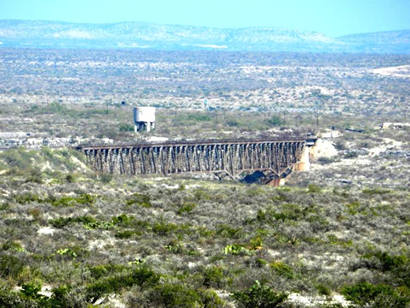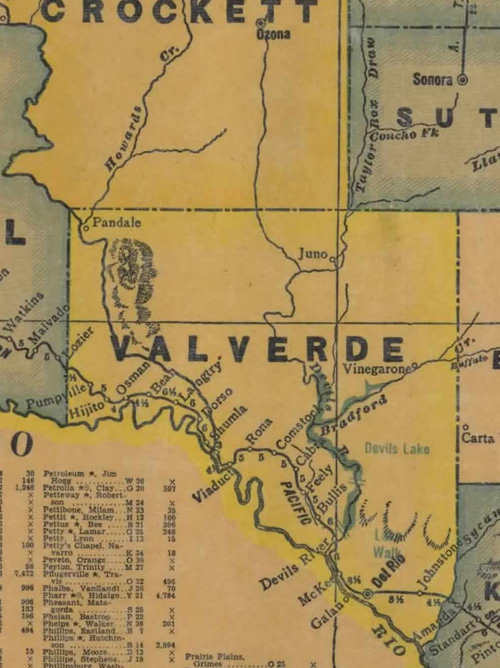Vinegarroon, West Texas Ghost Town. (original) (raw)
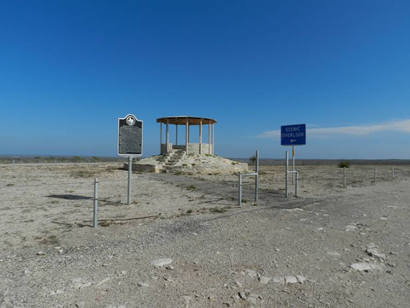
History in a Pecan Shell
The region is now famous for the high bridge and the local pre-Columbian artwork on area cliffs. The name was from one of the region�s denizens, the whip scorpion. The fanciful name comes from the acrid odor the arachnid emits when alarmed (or stomped). The town came into being in 1881 with the arrival of �Judge� Roy Bean. Bean, who had left San Antonio under a dark cloud, was one of Texas� most colorful characters and was undoubtedly aware of the impending arrival of the railroad (The Galveston, Harrisburg and San Antonio).
The site became a camp for railroad workers, most of them fleeced by Bean in one way or another. With the construction of the Pecos High Bridge, the rails were shifted and Bean left Vinegarroon for Langtry, the town with which he is most famously associated.
Photographer�s Note:
�This marker and its location may be of more interest than the actual townsite of Vinegarroon. It is in a rather desolate but uniquely beautiful desert roadside park, high on the top of a road cut on US 90 some 12 miles SE of Langtry. The other prominent crossing of the Pecos, the railroad bridge, is visible from the Vinegarroon marker site only with binoculars or a telephoto lens.� -
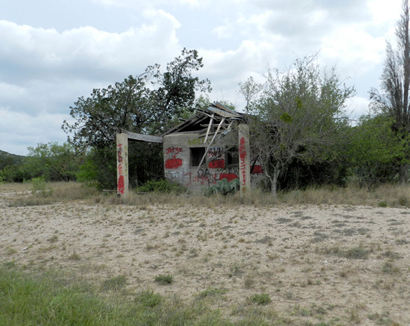
Former Vinegarroon Station
Photo courtesy of Barclay Gibson, June 2014
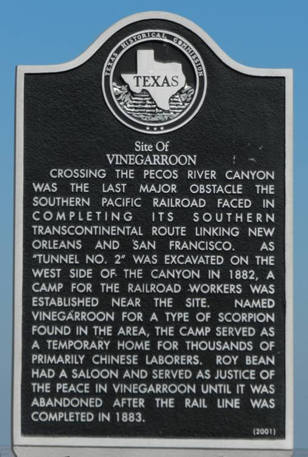
Vinegarroon Historical Marker
Photo courtesy of Barclay Gibson, September, 2011
Historical Marker - on US 90
10 miles E of Langtry
4.6 miles W of Pecos River bridge
Site of Vinegarroon
Crossing the Pecos River Canyon was the last major obstacle in the Souther Pacific Railroad faced in completing its southern transcontinental route linking New Orleans and San Francisco. At "Tunnel No. 2" was excavated on the west side of the canyon in 1882, a camp for the railroad workers was established near the site. Named Vinegarroon for a type of scorpion found in the area, the camp served as a temporary home for thousands of primarily Chinese laborers. Roy Bean had a saloon and served as Justice of the Peace in Vinegarroon until it was abandoned after the rail line was complete in 1883.
(2001)
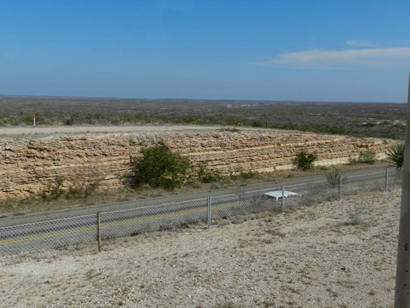
The Highway Overlook
Photo courtesy of Barclay Gibson, September, 2011
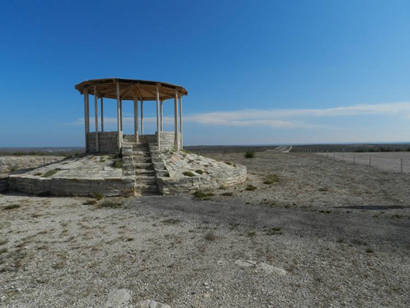
Gazebo on the roadside park
Photo courtesy of Barclay Gibson, September, 2011
Val Verde County County 1940s map
From Texas state map #4335
Courtesy Texas General Land Office
Texas Escapes, in its purpose to preserve historic, endangered and vanishing Texas, asks that anyone wishing to share their local history, stories, landmarks and recent or vintage/historic photos, please contact us.
